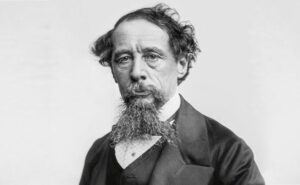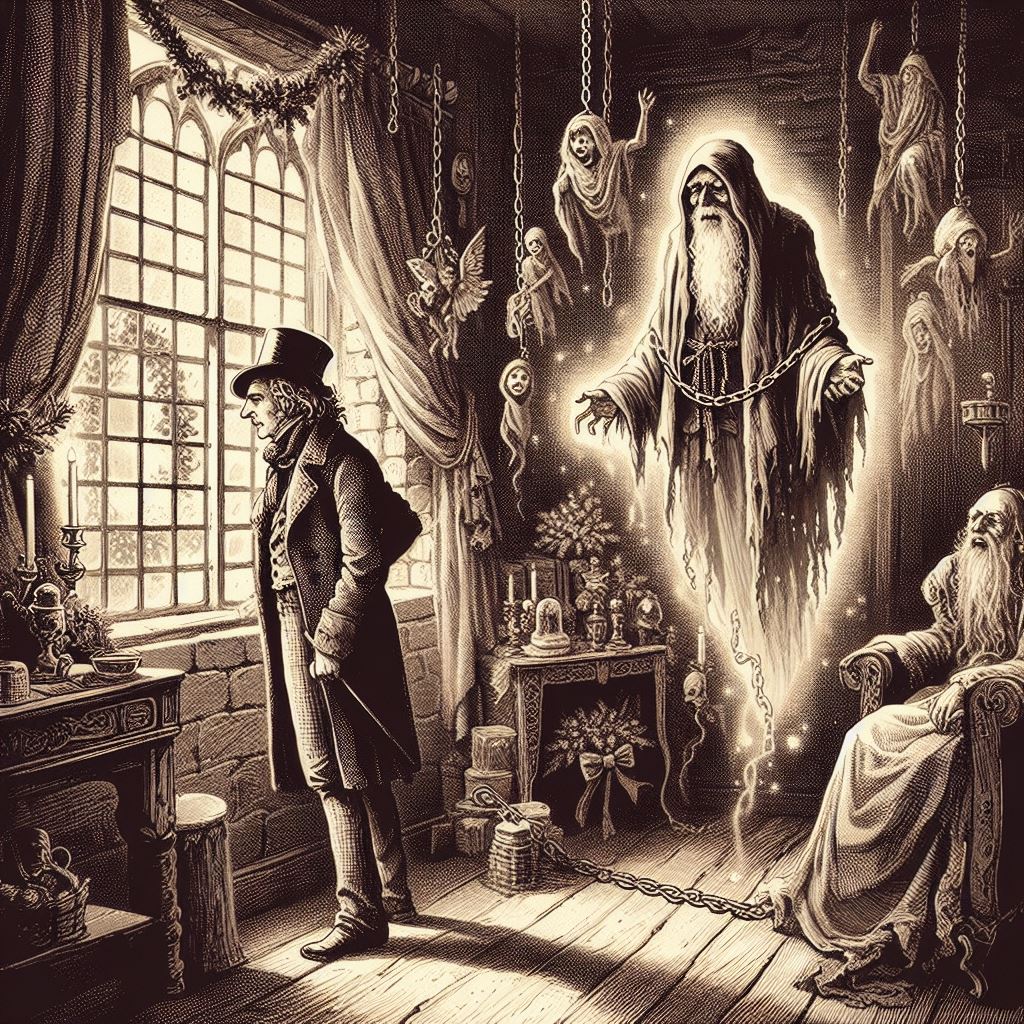Charles Dickens is arguably one of the most famous Victorian era writers and an English author renowned for his celebrated novels. His literary works remain well known in 19th-century literature and beyond.
Key Takeaways:
- Charles Dickens was an English author and a famous novelist of the 19th century.
- His life experiences, social and cultural background in the Victorian era shaped his literary works.
- Dickens’ famous literary works include Great Expectations and A Tale of Two Cities.
- His masterful storytelling and ability to comment on society continue to resonate with readers today.
- Dickens’ enduring legacy remains significant in the literary world, with continued recognition posthumously.
The Life and Times of Charles Dickens
Charles Dickens, born in Portsmouth, England, on February 7, 1812, grew up in a financially turbulent household. His father was imprisoned for debt when Dickens was only 12, forcing him to work in a boot-blacking factory to support his family.
Dickens’ difficult childhood and personal struggles would later inspire many of his famous literary works, which often dealt with the harsh realities of poverty and social injustice in Victorian England.
Despite his limited formal education, Dickens pursued a career as a journalist, writing for various newspapers and publications. His early experiences as a newspaper reporter helped him to develop the sharp wit and keen observation skills that would later make his novels so compelling.
Finally, in 1836, Dickens published his first novel, The Pickwick Papers, which became an instant success. Over the next two decades, he would write some of the most famous novels in the English language, including Oliver Twist, David Copperfield, and Great Expectations.
Throughout his life, Dickens remained an active and engaged citizen, using his writing as a platform to raise awareness about social issues and advocate for change. He died on June 9, 1870, leaving behind a literary legacy that continues to inspire and captivate readers around the world.
Literary Works of Charles Dickens
Charles Dickens is widely regarded as one of the greatest literary geniuses of the 19th century, due in no small part to his novelistic works. Among his renowned literary works, A Tale of Two Cities and Great Expectations stand out as two of his most celebrated masterpieces.
| Novel | Publication Date | Themes | Major Characters |
|---|---|---|---|
| Great Expectations | 1861 | social class, identity, revenge | Pip, Estella, Miss Havisham, Abel Magwitch |
| A Tale of Two Cities | 1859 | revolution, resurrection, sacrifice | Charles Darnay, Sydney Carton, Lucie Manette |
Both novels explore the complexities of society and interpersonal relationships during Victorian times, highlighting Dickens’ masterful storytelling and social commentary. In Great Expectations, Dickens’ complex characters reflect the social and economic upheavals of the day, illustrating the challenges faced by the lower classes as they struggle to better their circumstances. Similarly, A Tale of Two Cities explores class struggle, particularly in the context of the French Revolution, ultimately raising questions about the value of sacrifice and redemption.
Beyond his works of fiction, Dickens is also known for his journalistic writings and activism, using his platform to support and advocate for social change throughout his life.
Charles Dickens’ Enduring Legacy
Charles Dickens is considered one of the literary geniuses of the 19th century. His works continue to be studied and enjoyed by readers around the world, thanks to his ability to capture the human experience and address social issues relevant to his time.
Dickens’ impact on literature during his lifetime was substantial. He was widely celebrated for his masterful storytelling and social commentary in works such as Oliver Twist and A Christmas Carol. His contributions to the literary world did not go unnoticed, as he was awarded several honors and accolades during his lifetime, including a knighthood.
Dickens’ legacy extends beyond the 19th century, as his works continue to be studied and appreciated today. His ability to address social issues such as poverty, class inequality, and corruption has made him an enduring figure in literature. Additionally, his masterful use of characterization and setting has influenced countless writers that have come after him.
In conclusion, Charles Dickens’ literary genius and contributions to 19th-century literature have ensured his place in history as one of the most influential authors of his time. As readers continue to discover and appreciate his works today, it is clear that his legacy will endure for generations to come.


